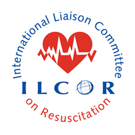Author: Laurie J. Morrison, Claudio Sandroni, Brian Grunau, Michael Parr, Finlay Macneil, Gavin D. Perkins, Mayuki Aibiki, Eileen Censullo, Steve Lin, Robert W. Neumar, Steven C. Brooks and on behalf of the International Liaison Committee on Resuscitation
Originally published: 8 Aug 2023
Sudden out-of-hospital cardiac arrest is an important public health issue that results in a tremendous loss of life despite optimal therapy.
When resuscitation fails, organ donation provides an opportunity for cardiac arrest patients and their families to save the lives of others.
With organ transplant waiting lists getting longer every day, it is our responsibility, as the resuscitation community, to optimize donation opportunities for our patients. The potential for organ donation after out-of-hospital cardiac arrest in communities around the world is substantial and under-recognized.
Unfortunately, the published science is sparse and complicated by inconsistent and incomplete definitions that do not reflect all relevant clinical scenarios associated with out-of-hospital cardiac arrest.
Changes to the Maastricht classification system are suggested to closely align with the clinical spectrum of out-of-hospital cardiac arrest and refined reporting based on type of donor. Changes to the Utstein template for out-of-hospital cardiac arrest reporting to include organ donation metrics as mandatory variables will contribute to more uniform reporting. These changes will support improved quality and relevance of future research around organ donation after out-of-hospital cardiac arrest.
Future cardiac arrest care guidance should include organ and tissue donation considerations, on the basis of available local options. Uncontrolled Donation after Circulatory Death (uDCD) is identified as a significant potential source of organ donors in the out-of-hospital cardiac arrest population, but significant operational, ethical and legal barriers exist across most jurisdictions.
Evolution in technology and systems of care may create opportunities for this to be a more viable option in the future. Legislative changes to a default consent or opt out approach for all adult citizens will increase donor availability and transplant rates and the increase in volume will contribute to improved transplantation infrastructure and cost-effective ratios.
We support continued innovation in uDCD approaches addressing recognized barriers.
All health systems should evaluate, develop and implement protocols to optimize organ donation opportunities for patients who suffer out-of-hospital cardiac arrest and fail attempts at resuscitation.
For the full statement visit the below links:
https://www.ahajournals.org/do...
For additional queries please contact: ilcor@heart.org
